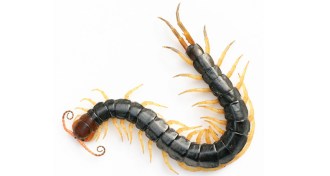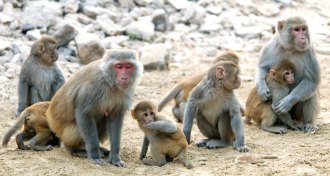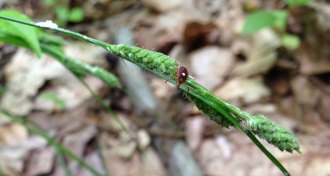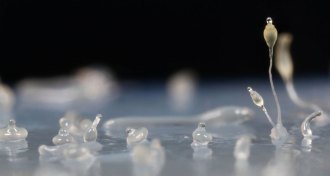Uncategorized
-
 Astronomy
AstronomyHow the Parker probe was built to survive close encounters with the sun
Scientists had to get creative in testing the technology for the Parker Solar Probe, using huge mirrors, dust tunnels and even reams of paper.
-
 Neuroscience
NeuroscienceSoccer headers may hurt women’s brains more than men’s
Women sustain more damage from heading soccer balls than men, a brain scan study suggests.
-
 Health & Medicine
Health & MedicineA medical mystery reveals a new host for the rat lungworm parasite
Doctors report that A. cantonensis was transmitted to two people who ate raw centipedes, but you can get it from other creatures as well.
-
 Neuroscience
NeuroscienceAnxiety in monkeys is linked to hereditary brain traits
A key brain connection may be behind childhood anxiety, brain scans of monkeys suggest.
-
 Health & Medicine
Health & MedicineThis tick may play a part in gumming up your arteries
Having antibodies to a sugar tied to red-meat allergy is associated with more plaque in the artery walls, a small study shows.
-
 Anthropology
AnthropologyConflict reigns over the history and origins of money
Thousands of years ago, money took different forms as a means of debt payment, archaeologists and anthropologists say.
By Bruce Bower -
 Anthropology
AnthropologyHow an ancient stone money system works like cryptocurrency
Money has ancient and mysterious pedigrees that go way beyond coins.
By Bruce Bower -
 Microbes
MicrobesHow a slime mold near death packs bacteria to feed the next generation
Social amoebas that farm bacteria for food use proteins to preserve the crop for their offspring.
By Susan Milius -
 Planetary Science
Planetary ScienceWhat does Mars’ lake mean for the search for life on the Red Planet?
A lake spotted hiding under Martian ice could support life, but finding out if anything lives there could be challenging.
-
 Animals
AnimalsGot an environmental problem? Beavers could be the solution
A new book shows how important beavers have been in the past — and how they could improve the landscape of the future.
-
 Science & Society
Science & SocietyPeople are bad at spotting fake news. Can computer programs do better?
Fake news–finding algorithms could someday make up the front lines of online fact checking.
-
 Particle Physics
Particle PhysicsA new quasiparticle lurks in semiconductors
Strange entities called collexons hint at undiscovered physics among interacting subatomic particles in a semiconductor.